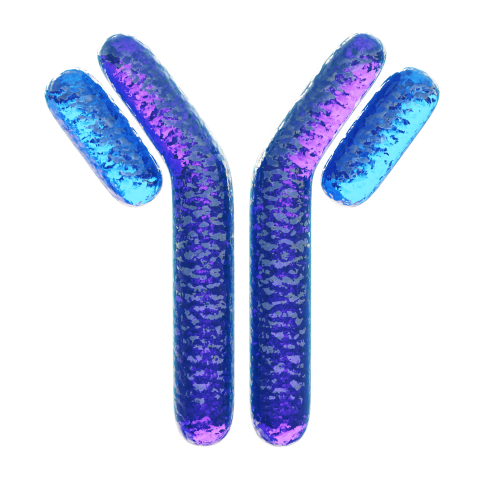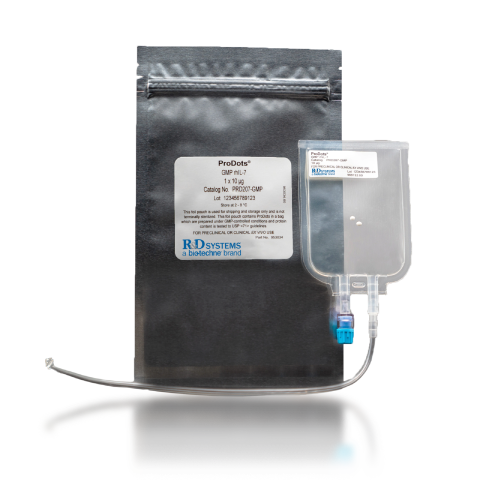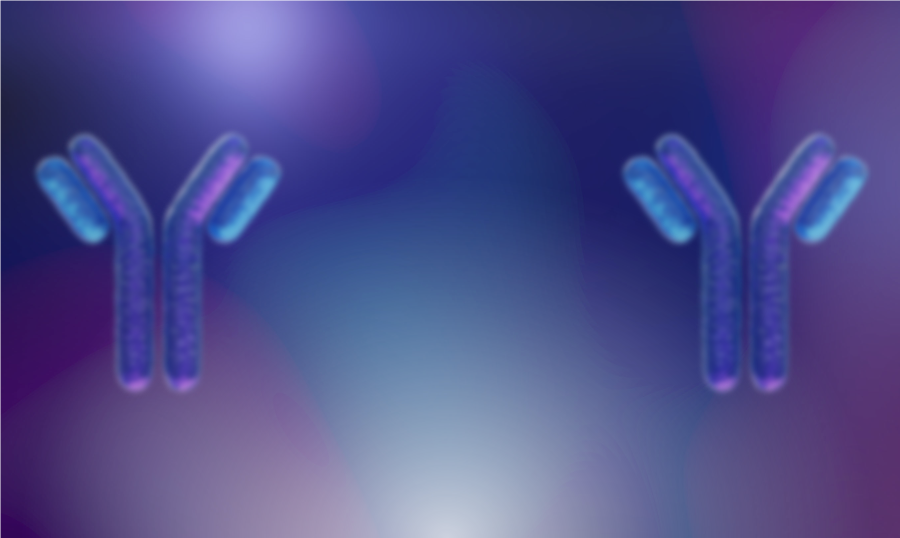Natural Killer (NK) Cells for Cell Therapy
Natural killer cells have the potential to address common limitations of T cell-based immune cell therapies. NK cell biology offers promising advantages for both therapeutic activity and manufacturing simplification, leading to improved delivery of effective therapy to patients.
- Reduced risk of cell therapy failure due to antigen escape. NK cells act by several mechanisms besides antigen specific CAR targeting. Their redirected cell lysis and antibody-directed cellular cytotoxicity (ADCC) functions serve as antigen-independent means to kill mutant target tumor cells.
- Improved scalability and speed of therapy delivery. NK cells are amenable to developing allogeneic therapies based on universal cell banks. These banks can supply therapeutic cells much more rapidly than autologous processes which require patient cells to produce each treatment.

As Your Program Advances Towards the Clinic, We Will Grow With You
Serum-Free and Animal-Free Cell Culture
Serum-Free and Animal-Free Cell Culture
Increase the consistency of your cell cultures as you approach translational studies for cell therapy programs. Adopting these media will:
- Reduce variability in media composition
- Simplify compliance with regulatory guidelines
- Simplify comparability testing for raw material changes
Transitioning From Research to GMP
Transitioning From Research to GMP
As you advance from discovery into process development and clinical manufacturing, choose GMP raw materials with the equivalent performance as the research-grade products you use. This will make your transition as efficient and seamless as possible.
NK Cell Isolation
Begin your immunotherapy workflow on a strong footing. Accurate and reproducible isolation of NK cell populations will lay the groundwork for a successful cell therapy program. After cell isolation, confirm that your procedure is effective with thorough cell phenotype analysis.

NK Cell Selection
NK Cell Selection
Antibody specificity is the basis for accurate and reproducible cell selection. Choosing the right antibodies will enable you to reliably isolate high purity NK cell populations.
- Antibodies for Immune Cell Therapy
- MagCellect™ Human NK Cell Isolation Kit
- Anti- CD3 and CD19 antibodies to confirm removal of T and B cells
- Recombinant antibody engineering and GMP antibodies
- Monoclonal panel development
- Specialty conjugation
NK Cells From Induced Pluripotent Stem Cells
NK Cells From Induced Pluripotent Stem Cells
Differentiation of iPSCs into NK cells facilitates the generation of universal cell banks to treat multiple patients with reduced cost and more rapid development.
NK Cell Culture and Expansion
Generating enough NK cells to support clinical trials requires a consistent and scalable expansion protocol. To boost culture consistency, QC your media preparations with precise quantitation of cytokines and growth factors. Analyze your expanded cultures for cell number, viability, and functionality.


Cell Selection
Cell Selection
- Custom GMP Antibodies for cell selection.
- NK cell marker antibodies to confirm selection by flow cytometry.
- Custom antibody conjugation with biotin or fluorochromes.

Cytokines & Growth Factors
Cytokines & Growth Factors
GMP ProDots Proteins are formulated as dissolvable spheres enclosed inside sterile, weldable bags for closed processing cytokine addition.
Animal-Free GMP Proteins are produced in dedicated controlled-access laboratories to prevent potential contamination by animal components or byproducts.

Small Molecules
Small Molecules
GMP small molecules promote somatic cell reprogramming to iPSC prior to NK cell differentiation - our ancillary grade small molecules facilitate simple translation from research-use to GMP.
Bio-Techne believes in the power of partnerships. We have joined with Fresenius Kabi and Wilson Wolf to bring you ScaleReady™, lowering the barriers to entry into the immune cell therapy space for all sizes and stages of manufacturing programs. ScaleReady brings cell and gene therapies to life by offering a significant reduction of complexity and cost while consistently providing superior repeatability and cell quality.
The ScaleReady product portfolio supports scalable feeder-free NK cell expansion, delivering true platform, process, and product continuity for your NK cell programs. When paired with the Lovo® and Cue® functionally-closed-system automated cell processing systems, Bio-Techne reagents and the G-Rex® Bioreactor enable high throughput parallel processing of cell therapies within a small footprint.
TcBuster for Non-Viral Gene Delivery
Accomplish your NK cell engineering more easily by using non-viral gene delivery. TcBuster will revolutionize your ability to engineer the optimum phenotype for your cell therapy.
- Reduced cost of genetic modification
- Rapid cell engineering with manufacturing controls
- Large cargo size integration
- Flexibility to deliver multiple genes in one operation
- Not subject to supply shortage of lentivirus vectors
NK Cell Engineering With Lentivirus
Vector characterization
- Capsid characterization with iCE Maurice™
- Capsid monitoring during purification with Simple Western™
- Identification of capsid aggregates and contaminants with Micro-Flow Imaging™
Process efficiency improvements with viral transduction enhancers


Confirming Successful Cell Engineering
Once you have engineered your NK cells, verify that their phenotype reflects the gene editing you intended.

Human NK cells were enriched from PBMCs and either (A) transduced or (B) not transduced with a human CD19 CAR. Cells were stained with Human CD56 PE-conjugated Antibody and Recombinant Human CD19 Protein, Atto 647N Conjugate.
Evaluating CAR Expression on CAR-T Cells Using FluorokinesTM
Evaluating CAR Expression on CAR-T Cells Using FluorokinesTM
One of the current challenges in the field of CAR-T cell therapy is the lack of a simple assay to easily detect and quantify CAR expression following T cell transduction. Read this application note to learn about the advantages of using R&D SystemsTM Fluorokines fluorescent-labeled proteins to directly stain and detect CAR+ cells by flow cytometry.

The CAR ToolKit: Progress and Challenges in CAR-T/NK Cell R&D and Mfg
The CAR ToolKit: Progress and Challenges in CAR-T/NK Cell R&D and Mfg
With numerous clinical trials underway and multiple CAR-T cell products now approved, solving the current obstacles when manufacturing CAR-T/NK cell products continues to be a pressing issue for the cellular immunotherapy field. Watch this webinar, hosted by BioInsights, to learn about the current challenges, latest progress, and innovation facing CAR-T and CAR-NK cell development.
NK Cell Characterization
Final product characterization of your NK cells should cover all critical quality attributes (CQAs) to ensure your product is as safe as possible for in vivo administration. Using orthogonal assays to measure unrelated parameters will enable thorough analysis of the cell surface, secretory profile, NK cell cytolytic activity, and residual contaminants.


NK Cell Phenotype
Perform a detailed phenotypic characterization of your NK cells to determine if they express the right surface receptors for the cell subset and activation status you need. In addition, measure population heterogeneity and the absence of residual feeder cells from culture expansion.

NK cell phenotypic analysis with the FlowX Human NK Cell Phenotyping Kit. NK cells were expanded from PBMCs in ExCellerate Human NK Cell Expansion Media with plate-bound anti-human NKp46 supplemented with recombinant human IL-2, IL-12, IL-18, and IL-21 for 13 days. Cells were analyzed with antibody conjugates included in the kit: NKp30 Alexa Fluor™ 488, CD16 PerCP, CD56 Alexa Fluor™ 647, NKG2D Alexa Fluor™ 700, NKp46 PE, and CD3. Gating was based off live cells (using the Live-or-Dye 405/545 dead cell exclusion dye), and quadrants were set using isotype controls (not shown).

NK Cell Function
To make sure your cells are functional as well as phenotypically intact, assay their release of effector NK cell molecules including IFN-gamma, Granzymes, and Perforin. In addition, directly measure the ability of your cells to lyse target cells in co-culture.

CAR-NK cell cytotoxicity using the FlowX Human NK Cell Killing Flow Cytometry Kit. Human NK cells were enriched from PBMCs and transduced with a human CD19 CAR (CAR-NK). CAR-NKs were labeled with Janelia Fluor® 646, Daudi target cells or K562 target cells were labeled with MitoMark Green, and cells were co-cultured for 2 hours at the indicated Effector to Target ratios. Anti-LAMP-1/CD107a PE antibody was included in the culture during the 2 hour killing assay to measure degranulation. Cells were harvested and stained with anti-human CD56 APC and CD3 Alexa Fluor 405 antibodies. To measure target cell death, CD3-/CD56- Janelia Fluor 646- cells were analyzed for MitoMark Green.
Contaminant Screening
Make sure that your NK cell product is clean enough for in vivo administration, either in animal models or in clinical trials. Confirm that the levels of particulates, residual cell activation beads, and other impurities are low enough to meet your requirements.
Tissue Biopsy and NK Cell Localization
Monitor the biodistribution of your NK cell therapy in vivo with single-cell resolution in the context of tissue morphology.
- RNAscope™ and BaseScope™ assays for quantitative transgene mRNA analysis in intact tissues
- Good Clinical Laboratory Practice (GCLP)-compliant RNAscope™ ISH analysis for clinical and preclinical studies
- Professional Assay Services for tissue-based expression analysis support

Detection of NK cells in human cervical cancer using the RNAscope Multiplex Fluorescent V2 Assay. NK cells were detected in situ with specific marker probes for NCR1, CD56, XCL1, and CCL5. Read the scientific poster for more details.

In Vivo Host Monitoring
Profile the host response to your NK cell therapy with the R&D Systems® Luminex® Assays. The Human XL Cytokine Performance panel profiles up to 46 targets simultaneously. Choose the format that meets your needs.
Custom Services
No cutting edge cell therapy should be delayed from reaching patients just because the right materials aren’t available. If you need specially designed reagents or assays for developing your NK cell therapy, we will work with you to deliver optimized solutions for streamlining your process. We will gladly provide customized formulation and packaging as well as bulk orders.
Literature
Current and Emerging Immune Checkpoint Targets for Immuno-Oncology Research eBook
Products for Natural Killer Cells Brochure
Tools for Innate Lymphoid Cells Research Brochure
Innate Lymphoid Cell (ILC) Lineage Pathway and Localization Poster
Cell Markers Guide for Human Immune Cell Characterization Poster
Immune Cell Isolation and Culture Brochure
Immune Cell Therapy Workflow Poster
Profiling Immune Cell Populations in the Tumor Microenvironment
Read About Assessing the Purity of Your Cell Therapy Product
Website Resources
Natural Killer Cell Markers Interactive Tool
Flow Cytometry Panel Builder Tool
NK Cell Receptors Interactive Pathway
Innate Lymphoid Cell Differentiation Interactive Pathway
Streamlining Transition to GMP
On-Demand Webinars and Videos
Fully Automated NK Cell Immunoassays with Simple Plex
Analysis of NK Culture Heterogeneity with Single-Cell Western
Cell and Gene Therapy Symposium: Streamlining Scale-Up and Scale-Out
The Next Generation of AAV Characterization Tools
Cell and Gene Therapy Symposium: Challenges of Analyzing ATMPs
Streamlining Cell Therapy IND Submission: Leveraging Raw Material Supplier Partnerships
Advances in Cell and Gene Therapy Analytics: How to use Maurice to Characterize AAVs and LNPs
Natural Killer (NK) cells are innate lymphoid cells (ILC) that target and lyse cancer cells and virus-infected cells. Unlike T cells, NK cells recognize their targets in an antigen-independent manner. They can also enhance antibody-dependent cell-mediated cytotoxicity (ADCC) and complement-dependent cytotoxicity (CDC). NK cell-mediated target cell lysis is regulated by the balance between activating and inhibitory receptors which are coexpressed at the cell surface. Inhibitory receptors function as checkpoint molecules and limit the extent of NK cell activation. Altered expression of NK cell receptor ligands on target cells can result in either suppressed or enhanced triggering of NK cell cytotoxicity.
NK cell cytolytic activity can be increased by controlling the function of activating and inhibitory receptors. This may overcome in vivo immune evasion and improve the efficacy of NK cell-based immunotherapies. NK cells can be engineered to express chimeric antigen receptors (CAR) to enable targeting specific cells and triggering NK cell-mediated lysis of the targeted cells. In addition, NK cell engineering may up- or downregulate surface receptors to modulate downstream signaling, resulting in an overall increase in NK cell activation.
Natural killer T (NKT) cells are a specialized population of T cells that express a semi-invariant T cell receptor (TCR alpha beta) and surface antigens typically associated with natural killer cells. The TCR on NKT cells is unique in that it recognizes glycolipid antigens presented by the MHC I-like molecule CD1d. Like natural killer cells, NKT cells can also induce perforin-, Fas-, and TNF-related cytotoxicity.
When used as an advanced therapy medicinal product (ATMP), NK cells can be redirected to kill a specific tumor cell or virus-infected cell population. The balance of activating and inhibitory NK cell receptor signaling can also be manipulated with the goal of enhancing cell activation. These engineered NK cells are then expanded ex vivo for use as personalized adoptive cell therapies.
Luminex® is a Registered Trademark of Luminex Corporation.









